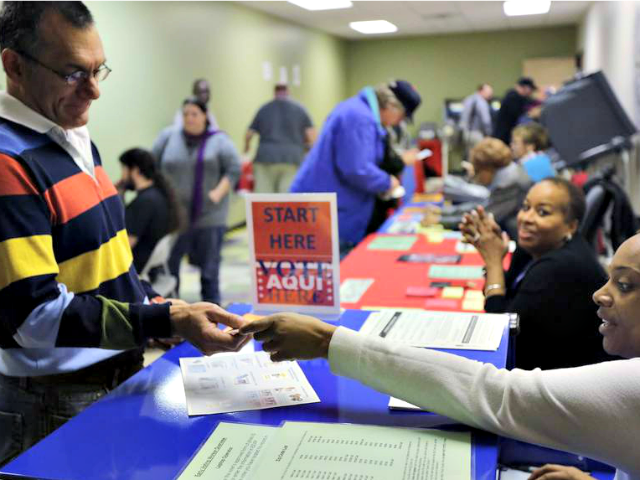Iowa on Friday became the latest state to enact a voter-ID law to protect the integrity of its election process, and the state’s elected leaders are already bracing for a legal challenge seeking to invalidate that law before it can go into effect next year.
Gov. Terry Branstad, a Republican who is the longest-serving governor in the nation, signed the legislation into law on May 5. The bill, House File 516, specifies voter-identification requirements to cast a ballot in elections, shortens the time period for early voting, and updates the state’s absentee-voting procedures.
Acceptable forms of identification include passports, driver’s licenses, non-operator IDs, and military IDs. The state will also issue free voter identification cards to provide a form of ID for voters who do not have any of the other documents, ensuring that no one may be excluded because they do not fit into any other category.
Voters without proper identification may still cast a provisional ballot on Election Day, which must be later authenticated before the ballot can be tabulated and added to the vote total.
The law also reduces the window for early voting in the Hawkeye State from 40 days to 29 days. Many conservatives object to long early-voting periods, positing that it facilitates voters casting ballots while campaigns are still underway, before the candidates have been fully vetted by the public.
“Protecting the integrity of our election law system is very important,” Branstad declared as he signed the bill into law. “We’re very proud that Iowa has a tradition and history of doing so, and this is going to strengthen our ability and make it more effective and efficient.”
In order to help voters learn about how to comply with this law, poll workers in upcoming local elections will ask voters for proper ID, but still allow voters who do not present proper ID to cast a ballot. The June 2018 primary elections will be the first election in which the new requirements will be mandatory. Additional provisions of the new law go into effect in 2019.
The Supreme Court upheld an Indiana voter-ID law in its 2008 case Crawford v. Marion County. The ACLU is threatening to sue to block Iowa’s law, saying it discriminates against racial minorities and other groups. Legal opponents have succeeded in blocking voter-ID laws in whole or in part in Texas, North Carolina, and other states. These lawsuits argue that voter-ID laws violate multiple provisions in the U.S. Constitution, as well as federal voting-rights laws.
More than 30 states currently have some form of voter-ID law, and legal experts believe the Supreme Court is likely to take another case soon to clarify which voter-ID requirements pass legal muster.
Ken Klukowski is senior legal editor for Breitbart News. Follow him on Twitter @kenklukowski.

COMMENTS
Please let us know if you're having issues with commenting.